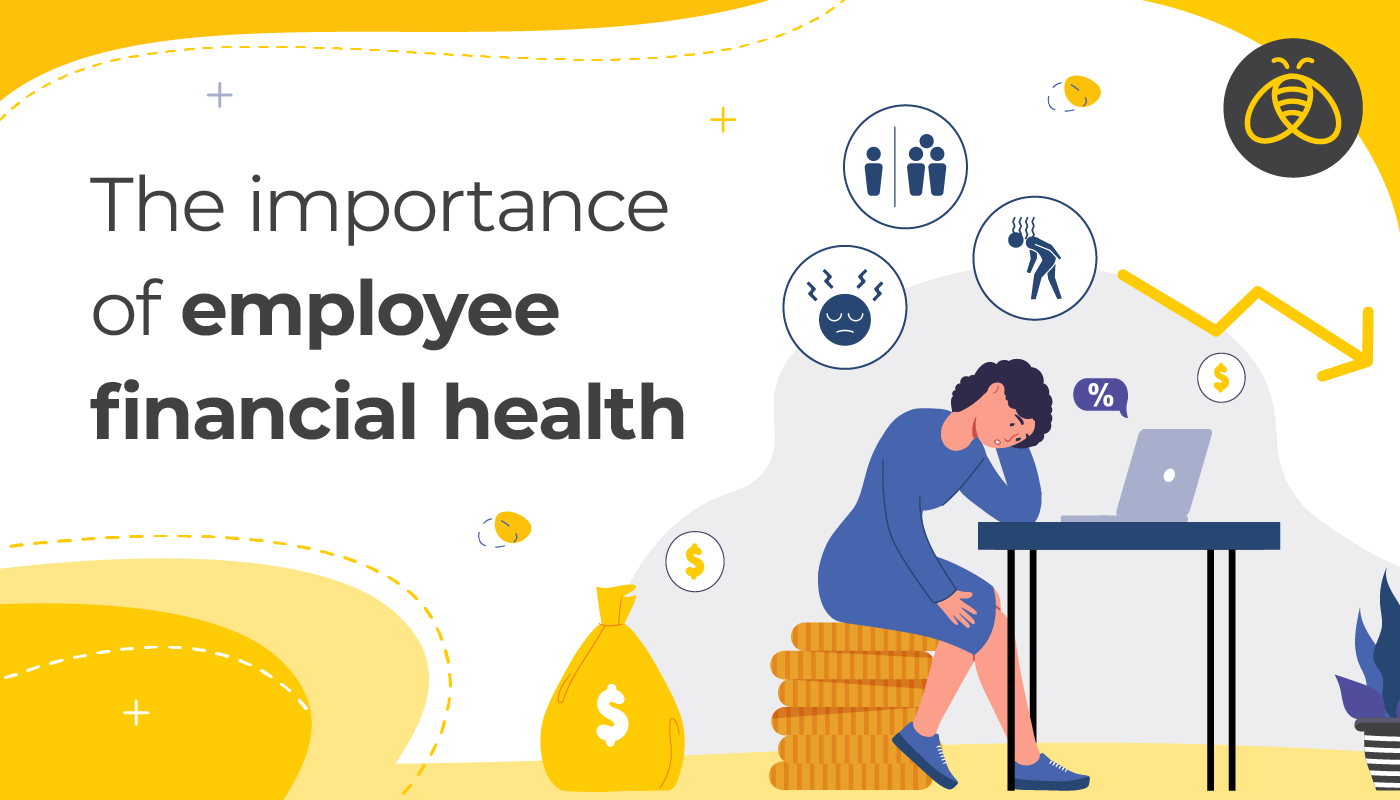The importance of employee financial health
By: Benefits by Design | Tuesday April 29, 2025
Updated : Friday April 25, 2025
Employee financial health is an integral part of work-life balance. In fact, financial health is one of the four pillars of health, and when one is suffering, the other three pillars are affected. For example, financial anxiety leads to stress, which affects the mental health pillar. Stress can lead to lack of sleep and muscle tension, affecting the physical health pillar. Finally, lack of funds and anxiety leads to loneliness and isolation and poor self-esteem, affecting the social health pillar.
In this blog, we’ll explore how financial stress is affecting Canadian employees and employers, and what businesses can do to help.
The state of employee financial health in Canada
Canadians were finally seeing a light at the end of the tunnel from inflation increases and high Bank of Canada interest rates. But just when the burden seemed to be getting lighter, insecurities surrounding tariffs from the US have caused our financial anxiety to rise once again.
The January 2025 TELUS Mental Health Index showed that 33% of Canadians don’t have emergency savings. People in this category report an anxiety score below 50, putting them in the distressed range for their mental health.
Coinciding with this is the fact that a third run short on funds at the end of each month. What’s more, almost a third say finances control their lives, and half have lost sleep over financial worries.
Poor employee financial health can manifest itself in other ways, such as:
- more absences and use of sick leave
- lower productivity and engagement
- increased isolation and lack of communication
- decreased motivation, effort, and focus
The business impact of poor and good employee financial health
The reality is employee financial health plays a role in how well employees area able to handle their job responsibilities. The lack of focus caused by financial insecurity could mean:
- administrative and financial errors
- more workplace accidents
- production errors
- poor customer service
You can calculate how much financial stress costs employers using this handy infographic created by the Government of Canada: Infographic: calculating the cost of employee financial stress on productivity – Canada.ca
On the other hand, businesses with financially secure employees will have higher productivity, lower absenteeism, and improved morale.
How to improve employee financial health with employee benefits
Employee benefits offer more than health benefits. In fact, when used correctly, employees can save money, stay healthy, and prepare for retirement. Communicating the benefits frequently can help to remind them of all the opportunities to save.
Navigating Financial Health: The Role of Employee Benefits in Debt Consolidation
Group retirement solutions
Offer a group retirement solution, such as a Group Registered Retirement Savings Plan (GRRSP), to help employees prepare for retirement and alleviate worries about their financial future. Group solutions offer lower fees, keeping more money in employees’ pockets. Contribution matching helps them save even more and improves loyalty.
Everything Employers Need to Know About Group Retirement Savings Plans
Spending accounts
Remind employees of all the eligible expenses they can put through their spending accounts. Health care spending accounts (HCSAs) can be used for any medical expense accepted by the CRA, including amounts not covered by the health care benefit, and health and dental premiums. So for someone who rarely uses their benefits, they can recoup their premiums up to the amount of the HCSA allotment.
A Wellness Spending Account (WSA) offer reimbursement for lifestyle expenses, which are usually determined by the employer. Employees worried about finances can surely find something they usually purchase that would fall under the WSA.
Everything You Need to Know About a Health Care Spending Account (HCSA)
Health and dental benefits
Healthy employees can still use the health care benefits for ad-hoc medications such as antibiotics. Employees with ongoing or chronic conditions such as diabetes will likely already be using the health benefits, but it can’t hurt to remind them of other covered services. By utilizing the eligible reimbursement options, employees can save on out-of-pocket costs. They can even use the paramedical benefits to relieve tension from financial anxiety with a Registered Massage Therapist.
Dental health is about more than just clean teeth. In fact, poor oral health can lead to other health problems, which can cost employees in the long run. Remind employees about their dental benefits, and the reimbursement percentages available.
Education benefits
Offer tuition reimbursement programs or professional development allotments to help your employees grow their careers without a large up-front cost. Higher education generally leads to higher salaries, giving employees a financial boost and incentive to upskill.
How to foster a culture of continuous learning through benefits
Financial security benefits
Until they are needed, many employees don’t think about the benefits that could help them should the worse befall them. The following coverages all play a crucial role in alleviating financial worries. Ensuring employees are aware of how is the key.
- Life insurance – provides their family with financial security in the event they pass away
- Accidental death and dismemberment (AD&D) – provides a lump sum in the event of an accidental injury or dismemberment (depending on the severity, the benefit varies)
- Disability insurance – provides employees who suffer an illness or injury which prevent them from working with weekly or monthly compensation based on their earnings.
- Critical illness insurance – provides employees with a lump sum should they be diagnosed with one of the covered critical illnesses. The lump sum can be used however it is needed.
Employee Assistance Program
Employee Assistance Program (EAP) services offer free financial advice and counselling. When employees don’t know what to do, they can turn to certified financial advisors through their EAP. Unbiased assistance can go a long way to giving them hope for their financial future.
What is an Employee Assistance Program (EAP) and What Does it Cover?
Employee financial health is about more than just a number in your bank account. There are many more tools in the toolshed which can be employed to help employees save money, up their earning potential, and spend within their means.


![[FREE DOWNLOAD] Group insurance Quick Tax Facts Guide for 2026](https://www.bbd.ca/wp-content/uploads/2026/02/Group-insurance-Quick-Tax-Facts-Guide-for-2026-Banner.webp)